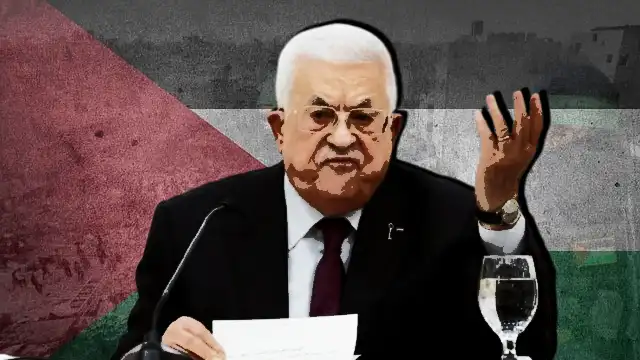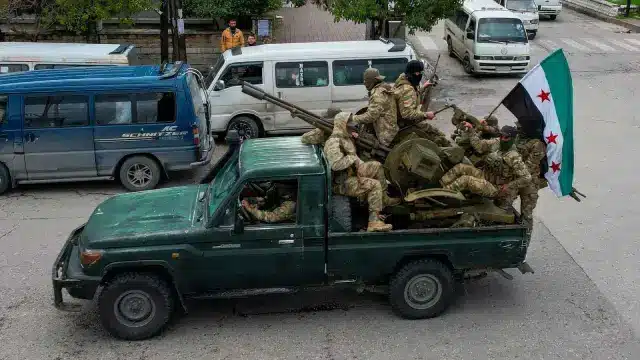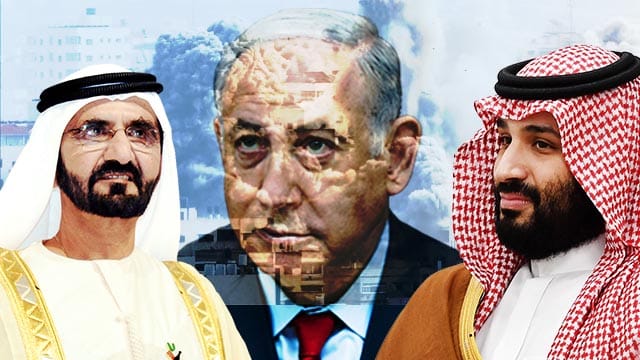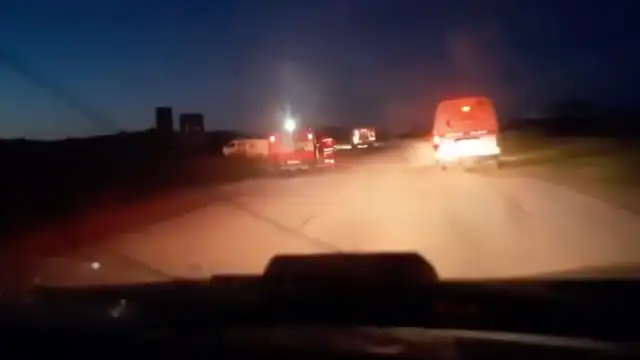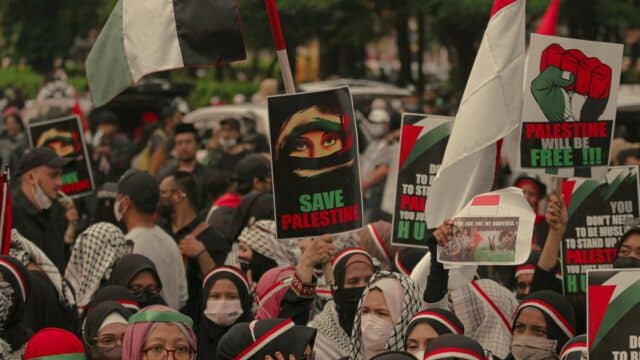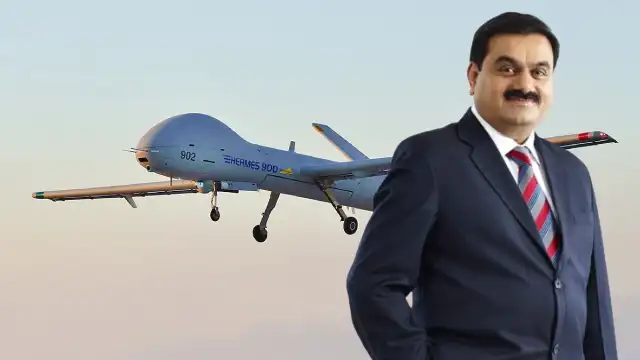Mahmoud Abbas has provoked outrage across Palestinian society by calling Hamas members “sons of dogs” during a crucial political meeting of the Palestine Liberation Organization (PLO). The Palestinian Authority president’s comparison of Palestinian Hamas fighters to “sons of dogs” has reopened deep wounds in the national movement at a critical juncture.
It isn’t new for Abbas to call Palestinians ‘animals’
This is not the first time Mr Abbas has used dehumanising language about Palestinians, especially Hamas. At the United Nations in May 2023, he lamented: “Even animals, we have to save them, right? If you have an animal, don’t you protect them?”
For many Palestinians, such rhetoric uncomfortably echoes Israeli Defence Minister Yoav Gallant’s description of Gazans as “human animals” at the start of Israel’s aggression on Gaza.
Mr Abbas’s verbal attack on Hamas came during the two-day meeting of the PLO’s Central Council (PCC).
Mr Abbas falsely claimed that surrendering Israeli captives held by Hamas would stop the genocide in Gaza.
He also demanded that Hamas disarm itself, parroting Israeli talking points, which stoked a controversy.
The timing could hardly be worse. Gaza lies in ruins after 19 months of Israeli bombardment that has killed over 50,800 people.
The West Bank faces intensifying settlement expansion, and it’s alleged that the “Palestinian Authority” forces have joined hands with the Israelis in cracking the whip on the resistance organisations.
In this scenario, the much-sought-after Palestinian political unity remains elusive.
A boycotted gathering
The legitimacy of Mr Abbas’s leadership has already been called into question before his inflammatory remarks comparing Palestinian Hamas fighters to “sons of dogs”.
The PLO Central Council has met just twice since 2018; the last one was in 2022.
Both previous meetings were boycotted by prominent PLO factions.
This year’s PCC meeting has seen even broader rejection.
The left-wing resistance organisation Popular Front for the Liberation of Palestine (PFLP), a founding PLO member, refused to attend from the outset.
According to the Marxist-Leninist organisation, the PFLP leaders derided the meeting, stating that no real reform came from previous meetings of the PCC.
The PFLP previously set conditions for their participation in the PCC meeting—PLO’s reforms based on resistance and democracy—and they made their position calling for national unity clear during recent meetings with Fatah, while affirming the PLO as the “sole representative of the Palestinian people”.
The Palestinian National Initiative (Al-Mubadara) and independent Hanan Ashrawi followed suit.
Most damaging was the Maoist organisation, the Democratic Front for the Liberation of Palestine’s (DFLP) dramatic walkout after the first day.
The DFLP had participated in previous meetings but withdrew, protesting “the leadership’s failure to respond to…national unity, a national strategy to confront the genocide in Gaza and annexation of the West Bank, and implementing the outcomes of the Beijing Declaration.”
With the boycott of PFLP, PNI, and DFLP, the three most significant parties after Fatah have withdrawn, leaving Mr Abbas essentially alone in the PCC, Palestinian resistance supporters highlighted.
Power consolidation amid crisis
Critics see the PCC meeting as a naked power grab. Mr Abbas, now 89 and 16 years past his electoral mandate, appears intent on reshaping PLO institutions to cement his control.
In recent weeks, there have been forced resignations across the Palestinian Authority, from ambassadors, the Prisoners Commission, to the prime minister.
Mr Abbas has unilaterally renamed ministries and reallocated powers. Most controversially, he is announcing a PLO vice president for the first time ever, widely seen as anointing his own successor.
This appears as Mr Abbas’s attempt to consolidate his faction’s grip over the PLO.
This manoeuvring comes after Fatah repeatedly rejected unity government proposals from other Palestinian resistance factions for over two years.
Meanwhile, Mr Abbas has accepted substantial Western funding that critics say has strings attached.
In February, the “Palestinian Authority” quietly took $680m from the US to crack down on resistance in the West Bank.
Shortly afterwards, Mr Abbas cancelled stipends for families of prisoners and Palestinian “martyrs”—a longstanding Israeli-American demand he had previously vowed never to accept.
Palestinian resistance factions allege that Mr Abbas freed up $150m per year for his “good behaviour”.
The European Union has likewise provided a $1.8bn aid package to the “Palestinian Authority” in recent weeks.
Some Palestinians see these funds as payment for maintaining the status quo rather than pursuing liberation.
According to the resistance, the “Palestinian Authority’s hands are soaked in Palestinian blood”, with their “US- and EU-funded bullets resulting in the martyrdom of 21 Palestinians since October 7th, 2023, while they carry out nonstop abduction campaigns and hold dozens of political prisoners.”
On Sunday, 300 PA officers were ordered to Cairo for a two-month training they are forbidden to refuse. Egyptian mediators suggested that these officers are earmarked to police Gaza when conditions allow.
The resistance believes these allows Mr Abbas to call Hamas “sons of dogs” during the PLO meeting.
‘A stab in the back‘
The response to Abbas’s characterisation of Hamas as “sons of dogs” has been swift and severe.
Condemnations have poured in from across the political spectrum, including from within his own Fatah movement.
Hamas leader Bassem Naim stated: “At a meeting that has usurped the legitimacy of the Palestinian people’s leadership, Mahmoud Abbas used foul language to describe a large and genuine segment of his own people.”
The Assembly of Families of Palestinian Prisoners asked pointedly: “Does Mr Abbas not envy the way Israeli leaders cherish their captives and exhaust every avenue to free them?”
The Families of Martyrs called his comments “a stab in the back” that highlights “the gulf between the Authority and the resisting Palestinian reality.”
Even Fatah Revolutionary Council member Fakhri Barghouti affirmed that the PCC meeting “does not represent the PLO or Palestinian people, but rather a gang that hijacks Palestinian decision making.”
The Palestinian Resistance Forces Alliance (PRFA), a Damascus-based coalition including Hamas, Palestine Islamic Jihad, PFLP-GC, and others, rejected Mr Abbas’s speech in which he called Palestinian Hamas fighters “sons of dogs”.
The PRFA affirmed that the PCC does not reflect Palestinian popular will or aspirations, and that the convention serves to entrench hereditary rule through a leadership that has lost its legitimacy across the occupied territories.
They stated that Mr Abbas’ attack is a desperate attempt to weaken unity for the benefit of the occupation.
“We say to Mahmoud Abbas: If you truly care about the future of these people, you should end your career with an honourable national stance that restores the value of our people’s unity and its institutions…We stress that our people will remain faithful to the choice of resistance; neither words nor imposed councils can assassinate it,” the PRFA stated.
A crisis of legitimacy
Mr Abbas’s tirade against Palestinian Hamas, whom he called “sons of dogs”, and resistance fighters at the PLO’s meeting has exposed the profound disconnect between Ramallah’s leadership and the popular sentiment.
Opinion polls consistently show around 90% of Palestinians want Mr Abbas to resign. Over 60% support dissolving the “Palestinian Authority” entirely, which they consider inept.
Ironically, Mr Abbas started his speech, where he called Hamas “sons of dogs”, by calling for “a unifying national foundation” and that Fatah is “continuing the struggle”, despite nearly everyone else calling out their blatant bluff, except, what the resistance called “the sycophants in the room in Ramallah who clapped for him”.
The far-left DFLP stated it was withdrawing from the PCC because it “refuses to share responsibility for the results of this meeting and for any disastrous consequences for the national cause.”
The party expressed shock at “the absence of national dialogue” at such a crucial moment.
The DFLP, in its announcement of withdrawal of all of its delegates from the PCC, stated that Abbas outright refused their proposals for unity and a national consensus plan at the PCC meeting.
Later, DFLP politburo members expressed that they strongly rejected Abbas’s remarks, in which he equated Hamas with “sons of dogs”, and Fatah’s monopolisation of the meeting’s agenda.
The PNC’s vice president, DFLP politburo member Ali Faisal, was completely excluded from the preparations for the meeting, the Maoist organisation claimed.
According to the far-left organisation, the meeting was centred on the dictatorial creation of the Vice Presidency of the PLO, not Palestinian grievances and aspirations.
Other factions called for implementing the Beijing Agreement of July 2024, a pan-faction unity deal that remains unrealised.
Critics accuse Fatah of imposing conditions in closed-door reconciliation talks that “sound like they came directly from Tel Aviv.”
Critics say Mr Abbas’s ranting crystallises the issues with the PLO and the “Palestinian Authority”: they are not forums of national consensus, but a stage for unilateral decrees that drift further from Palestinian popular consciousness with every passing day.
“Gaza remains under fire, the West Bank is occupied, but the gulf between the rhetoric of Ramallah and the resistance of the righteous has never been larger,” the critics of the Fatah within the resistance say.
Liberated captives’ voice
Perhaps the most damning response came from an unexpected quarter.
Palestinian prisoners from Mr Abbas’s own Fatah movement, recently freed in a prisoner exchange but denied support by the “Palestinian Authority” officials, issued a stinging rebuke.
“We were shocked, as were all free people, by the language of cursing and insults that appeared in the Central Council meeting,” they wrote from Cairo.
“At a time when speech was supposed to be unifying and inclusive, befitting the sacrifices and pain of this great people,” the prisoners added, criticising Mr Abbas’s speech that called Hamas “sons of dogs”.
The prisoners affirmed their “deep belief that the path of resistance is the only path capable of wresting the freedom of the prisoners and achieving the dignity of our people.”
Fatah Al-Intifada, a splinter group, demanded Mr Abbas “apologise to the Palestinian people, to the resistance, and to the blood of the martyrs and their families.”
“We strongly condemn and denounce, in the harshest terms, the obscene language used by the head of the Palestinian Authority, Mahmoud Abbas, against the Palestinian resistance,” the Fatah Al-Intifada said.
“His statements provided justification and a green light for the zionist enemy to continue its genocidal campaign against our people in the Gaza Strip, the West Bank, and all parts of Palestine,” the faction added.
Abbas widens gulf calling Hamas ‘sons of dogs’
The accusations that Mr Abbas and the PLO’s Fatah faction treat not just Gaza-based Hamas, but Palestinians as “sons of dogs”, fit a troubling pattern.
After nearly two decades of rule by presidential decree, cancelled elections, and security coordination with Israel, many Palestinians now see Mr Abbas as an obstacle to liberation rather than its champion.
For increasing numbers, legitimacy no longer resides in the halls of Ramallah but in the resistance. As the PLO leadership drifts further from popular sentiment, Mr Abbas’s legacy appears increasingly tainted by division rather than unity.
The president who once called Palestinians “animals” at the United Nations now faces a reckoning.
His attack on Hamas and Palestinians, whom he called “sons of dogs” at the PLO’s meeting, may prove to be a point of no return for a leadership already in crisis.

